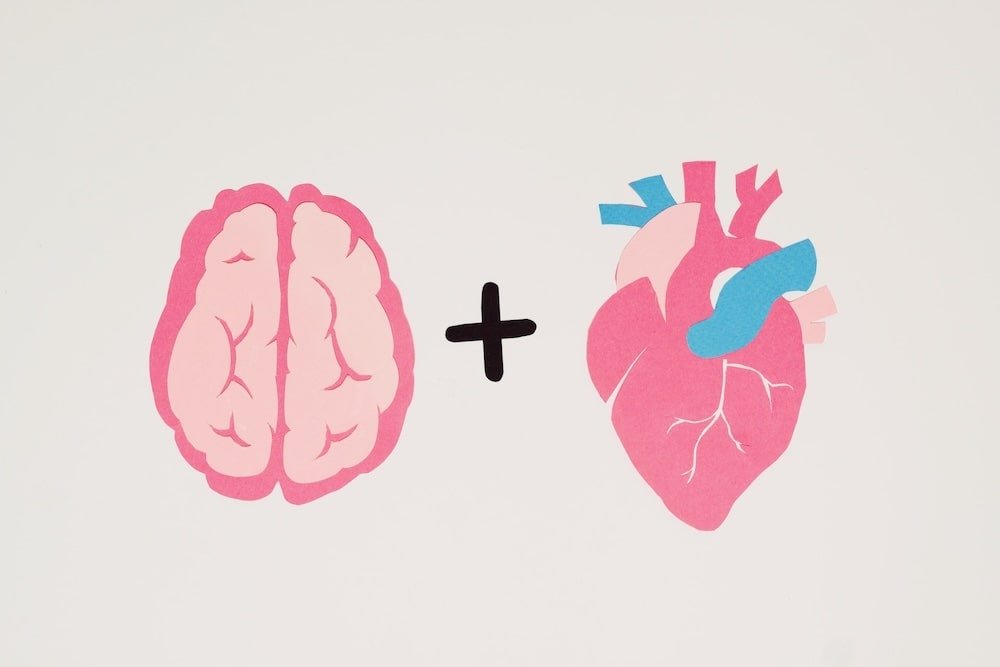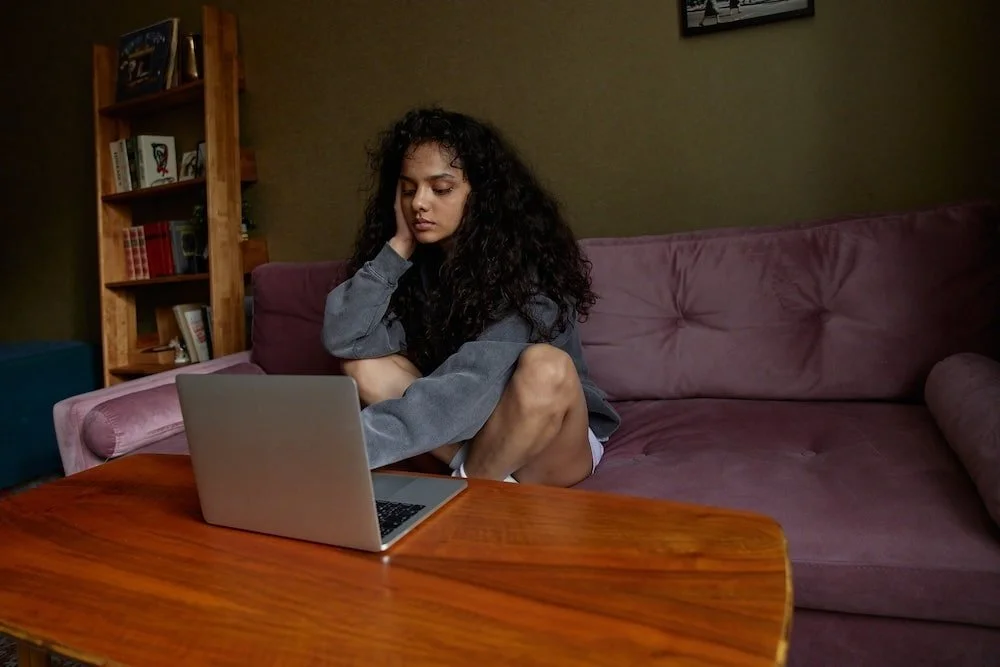Dealing with Recession Anxiety
Struggling with anxiety during a recession? Find practical tips to help you manage stress, build resilience, and regain a sense of control.
Anxiety's Memory Maze: Navigating Distortions and Finding Clarity
Explore the intricate relationship between anxiety and false memories in this insightful article. Discover how anxiety influences memory formation, retrieval, and interpretation, leading to potential memory distortions. Gain valuable insights into recognizing and addressing the impact of anxiety on memory, and learn practical strategies for managing anxiety-related symptoms. Dive deeper into the complexities of mental health and cognition.
Breaking Free: Conquer Anxiety about Anxiety with These Expert Strategies
Learn how to conquer anxiety about anxiety with expert strategies. Discover effective ways to manage metacognitive anxiety and regain control over your mental well-being. Dive into practical tips and insights to overcome the cycle of worry and fear. Find relief with anxiety therapy and take the first step towards a calmer, more fulfilling life.
Conquering Meeting Anxiety: Rituals for Career Success
This article will guide you through effective rituals to overcome meeting anxiety and thrive in your professional life.
HOW TO RELAX ON VACATION WHEN YOU STRUGGLE WITH ANXIETY
Vacations offer a much-needed respite from the daily stresses of life, providing an opportunity to unwind and recharge. However, for those grappling with anxiety, the prospect of vacation can also be accompanied by apprehension and worry. In this article, we will explore practical tips and techniques to help those with anxiety relax on vacation, fostering a sense of calm and allowing them to truly savor the experience.
Cognitive Diffusion: A Powerful Technique for Easing Anxiety
Cognitive diffusion helps individuals distance themselves from their anxious thoughts and beliefs, enabling them to develop a healthier and more balanced relationship with their inner experiences. In this article, we will explore what cognitive diffusion is, how it works, and the ways in which it can significantly alleviate anxiety symptoms.
Should you Take Intermittent Breaks from Digital devices
In today's digital age, our constant connection to digital devices has become an integral part of our lives. However, this continuous exposure to screens can have a significant impact on our mental health, particularly anxiety. Excessive screen time, information overload, and the pressures of constant connectivity can contribute to heightened anxiety levels. In this article, we will explore the relationship between anxiety and digital devices and discuss the benefits of taking intermittent breaks from screens as a strategy to find balance and promote overall well-being.
Friendship Anxiety: Navigating the Complexities of Social Connections
Friendship is an essential aspect of human life, providing us with emotional support, companionship, and a sense of belonging. However, for some individuals, the pursuit and maintenance of friendships can be accompanied by feelings of anxiety and unease. This phenomenon, known as friendship anxiety, is a distinct form of social anxiety that centers around concerns and fears related to friendships and social connections. In this article, we will delve into the nature of friendship anxiety, explore its causes and symptoms, and discuss strategies for coping and overcoming these challenges.
WHAT IS DIGITAL ANXIETY AND HOW TO COPE
In today's fast-paced digital world, our lives are intertwined with technology, offering convenience, connection, and countless opportunities. However, alongside the benefits, there is a growing phenomenon known as digital anxiety. In this article, we will explore what digital anxiety is, its causes and symptoms, and provide practical strategies to navigate and manage it effectively.
Anxiety and Sleep: How to Improve Your Sleep Quality to Reduce Anxiety
Anxiety and sleep are closely intertwined, with one often affecting the other. Anxiety can disrupt sleep patterns, leading to difficulty falling asleep, staying asleep, or experiencing restful sleep. On the other hand, inadequate sleep can exacerbate anxiety symptoms, creating a vicious cycle. Fortunately, there are strategies and techniques that can be employed to improve sleep quality, reduce anxiety, and break the cycle. This article will explore the connection between anxiety and sleep, and provide practical tips and techniques to help improve sleep quality and manage anxiety for a more restorative and peaceful sleep.
Routines That Help Reduce Anxiety: Establishing Calm and Stability
Living with anxiety can be challenging, but implementing healthy routines can provide a sense of stability, control, and calmness. Routines can help individuals manage anxiety by creating structure, reducing uncertainty, and promoting self-care. Let’s explore a range of routines that can help reduce anxiety and enhance overall well-being.
Common thought Traps keeping you stuck in Anxiety
Often, anxiety is perpetuated by thought patterns that trap individuals in a cycle of worry and fear. These thought traps can hinder personal growth, impair relationships, and diminish overall well-being. Let’s explore some common thought traps that keep people stuck in anxiety and provide strategies to overcome them.
Tips for reducing Anxiety at work
High levels of anxiety can be detrimental to work performance, as they can affect concentration, productivity, and decision-making abilities. Therefore, it is important to find ways to reduce anxiety at work in order to maintain mental health and wellbeing. Here are some strategies for reducing anxiety at work:
Why it may be worth doing a task at less than 100% and other perfectionist myths
One common myth associated with perfectionism is the idea that tasks must be completed at 100% in order to be considered successful. In reality, there are many reasons why it may be worth doing a task at less than 100%, let’s explore some of these reasons and other perfectionist myths.
The Benefits of Exercise for Anxiety: How to Get Started and Stay Motivated
Exercise is part of a robust self-care routine to help manage anxiety symptoms and reduce reactivity to triggers. Let’s explore the benefits of exercise for anxiety and provide tips on how to get started and stay motivated.
How to Recognize and Overcome Negative Thoughts that Trigger Anxiety
Negative thoughts can trigger and exacerbate anxiety, making it difficult to manage. Recognizing and overcoming negative thoughts is an important step in managing anxiety.
10 simple self-care techniques for managing anxiety
Anxiety is a common mental health issue that affects millions of people worldwide. It can manifest in many different forms, such as panic attacks, generalized anxiety disorder, social anxiety, and more. While there are many different approaches to managing anxiety, one effective way to do so is through self-care. Here are ten simple self-care techniques that can help you manage your anxiety.
The relationship between anxiety and social media: Understanding the impact
With over 3.6 billion social media users worldwide, social media has become an integral part of our daily lives. While social media platforms can be beneficial for social connections, entertainment, and education, it also has the potential to increase anxiety levels in individuals.
Identifying Perfectionism and its impact
Perfectionism is commonly characterized by the adoption of unattainable performance standards, which can result in negative reactions when these standards are not met.
4 ways to overcome perfectionism
Creating an atmosphere of acceptance through empathy, encouragement, self-reflection, and dialogue is a fundamental approach that can help individuals overcome perfectionistic thinking.




















